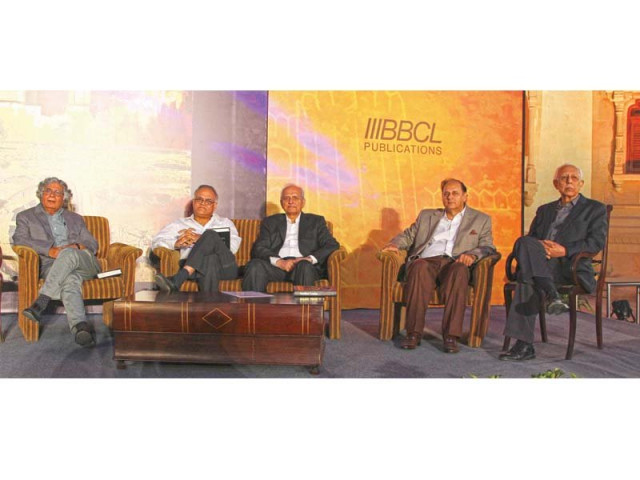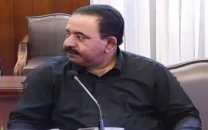Book launch: A very real memoir by Omar Khan
Sawdust Castles: A Memoir, is a gritty recollection of the author’s family’s move to Pakistan in 1947

Author Omar Khan recollects his family’s memories of their migration to Pakistan in 1947 in his book, Sawdust Castles: A Memoir, which was launched on Saturday. PHOTO: AYSHA SALEEM/EXPRESS
Khan was born in Bareilly, India in 1946 and migrated with his parents to Pakistan in 1947. A banker by profession, he has worked in many senior positions across the world. His book, Sawdust Castles, talks about the experiences of a family who had to leave a palace where their identity flourished and travel towards a new, unknown destiny.
Khan said that he wrote this memoir for one primary reason — to honour his parents for looking after the wellbeing of their family after they migrated from a place where their cultural identity flourished. He said that today we see a lot of help and information to start off with when it comes to decisions regarding migration. “Even then it requires a tremendous amount of courage and determination to leave [your home] for something unknown,” he said. “It was a harrowing process for my parents. Those were undignified circumstances and I hope none of you ever go through it.”

Former information minister Javed Jabbar, who wrote the foreword of the book, said that from the book one takes away the humanism of Omar Khan and a scorching sense of frankness. “He’s ended it abruptly and it works in a way. It leaves one dangling,” he said, adding that the summation of the book is such that it makes one suffocated in a good way. It is too singular an immersion in Khan’s life, that one wonders if it is narcissism, he stated. “But it is this sharing that is relatable to everyone,” said Jabbar.
Journalist and prominent literary figure, Ghazi Salahuddin also shared his impressions of the book, saying that Khan knows the art of storytelling. “Although it is a memoir, it has been written in a way as if it’s a screenplay,” he said. Talking about the genre of memoirs, he said that memoirs are very close to living memory. Referring to partition, he said that there is a limit to listening and understanding them. “Very soon, we will have people who aren’t alive to tell us about [partition]. History is not about politicians but rather about people and society,” he said.
SM Shahid, editor of the book, in a lighthearted moment, said that even if the book has not been scrutinised well by him, his English has certainly been bettered by it. “The bottom line is that the author is a natural storyteller. He is an expert in characterisation,” he said, adding that he has talked about everyone from his aapa, bari aapa and mamu to the one who kneads flour at a tandoor at the end of the street.
Published in The Express Tribune, February 15th, 2016.



















COMMENTS
Comments are moderated and generally will be posted if they are on-topic and not abusive.
For more information, please see our Comments FAQ